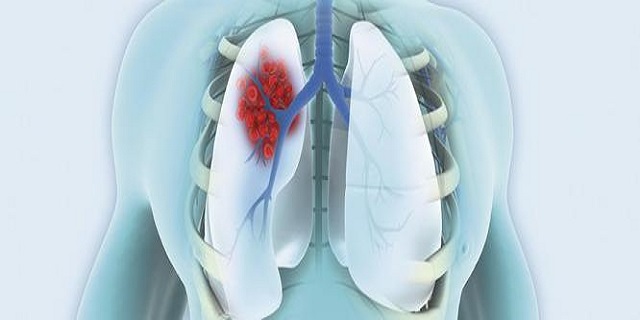Small cell lung cancer symptoms and causes are different than non-small-cell lung cancer. Read and inform yourself because small cell lung cancer is worse!
Although only 15% of lung cancer cases is small cell lung cancer, this type is pretty dangerous.

It differs in many ways from non-small-cell lung cancer. The threat is in the spreading and growth speed. Small lung cancer grows and spread so rapidly that is almost impossible to diagnose it on time. However, luckily, it responds pretty good on chemo and radiation. So, if discovered on time, it can be easily treated.
What are the small cell lung cancer causes?
Of course, smoking is the common cause for both small and non-small-cell lung cancer. However, smokers are at greater risk of getting small cell lung cancer because tobacco increases the multiplying of cancerous cells. In addition, the non-smokers which sit in smoking environment long or more precisely, live with a smoker are at 30% risk of getting lung cancer.
Exposure to mine, radon and asbestos are the major small cell cancer causes. Miners and people who are exposed on these chemical elements are most likely to develop small cell cancer. These people usually go to regular check-ups, however, there are those who don’t. If you are or you know someone who is exposed to these elements, please, advise them to check their lungs.
Small cell lung cancer symptoms
There can be different symptoms according to different stages of this cancer.
– Local growth symptoms include: coughing or coughing up blood, lack of breath and chest pain. As you can see, these are common symptoms for lung cancer. When you notice these, visit a doctor.
– The signs that say ‘cancer has spread to nearby organs’ are: hoarse voice or change of voice, shortness of breath, difficulty when swallowing and swellings.
– Different cancer spread (spreads on different sides of your body) give different symptoms:
- To the brain – vomiting, mental changes, headaches, seizures, blurred vision, nausea
- To the vertebra – back pain
- To the spinal cord – loss of bladder or bowel function, paralysis
- To the bones – bone pain
- To the liver – abdomen pain in the right, upper side
– The symptoms of small cell cancer due to paraneoplastic syndrome include: fatigue, muscle weakening, loss of appetite, skin changes, weight gain or loss and balance problems.
